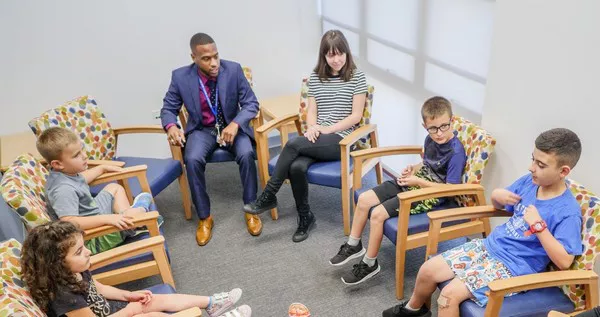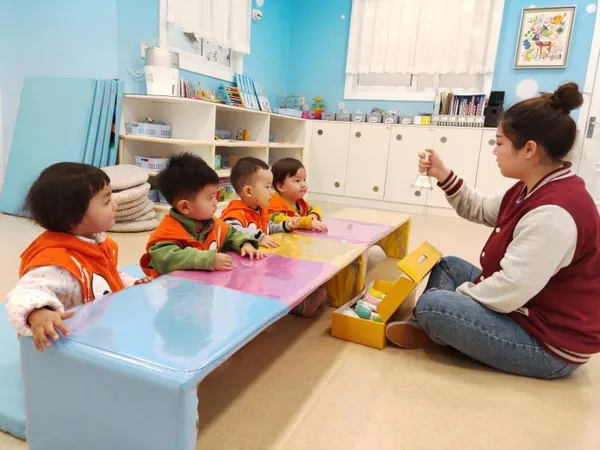Friendship is one of the most enriching relationships that anyone can have. It is often a source of emotional support, joy, and connection. However, like any human relationship, friendships can encounter challenges and conflicts. While it’s easy to imagine that true friendships should be free from disagreements or tensions, the reality is that conflicts in friendships are not only normal, but they can also be healthy and constructive if managed well.
This article will explore the dynamics of conflicts in friendships, why they happen, how they can be resolved, and why they might even strengthen the bond between friends in the long run.
Understanding Friendship Conflicts
Friendship conflicts arise when two people experience a difference in opinions, behaviors, or feelings that creates tension. These conflicts can stem from a wide range of issues—misunderstandings, jealousy, differing values, unmet expectations, or personal life changes.
In many ways, conflicts in friendships are similar to those in romantic relationships or family dynamics. The key difference is that friendships are typically voluntary and often lack the same level of commitment or shared responsibilities that come with family bonds or intimate partnerships. Despite this, the emotional attachment in friendships can be just as deep, which is why conflicts can sometimes feel equally intense.
Why Do Conflicts in Friendships Happen?
There are numerous reasons why conflicts might arise between friends. Some of the most common reasons include:
Miscommunication or Misunderstanding
One of the most frequent causes of conflict in friendships is miscommunication. Whether it’s a missed text, a misunderstood comment, or conflicting interpretations of actions or words, poor communication can lead to unnecessary tension. Often, a simple conversation can resolve the issue, but when assumptions are allowed to fester, it can lead to significant conflict.
Differing Expectations
In any relationship, people have expectations of each other. In friendships, these expectations might relate to things like availability, emotional support, or loyalty. When one friend feels that the other is not meeting these expectations, it can cause feelings of frustration or betrayal. These discrepancies can become a source of conflict, especially if the expectations are not openly discussed.
Changes in Life Circumstances
Life events—such as moving to a new city, changing jobs, getting into a romantic relationship, or having children—can dramatically alter the dynamics of a friendship. For example, a friend who gets very busy with work or a new partner may unintentionally neglect the friendship, leading to feelings of abandonment. Alternatively, personal growth or lifestyle changes can create a rift if both friends are no longer on the same page.
Jealousy or Competition
As with any close relationship, there is always the potential for jealousy. Whether it’s jealousy over other friendships, achievements, or romantic interests, these feelings can manifest as conflict. Competition can also arise if one friend feels that the other is being overly successful, popular, or receiving more attention.
Incompatible Values or Beliefs
Friendships often thrive when there is a shared understanding of values, ethics, and worldview. However, as people grow and evolve, they may find that they no longer agree on certain core beliefs. For example, political differences or diverging spiritual paths can lead to heated discussions or full-blown arguments.
Unresolved Past Issues
Sometimes conflicts are not about a single event or disagreement, but about unresolved issues that have been building up over time. If a previous hurt was never fully addressed, it may resurface during moments of tension, making the conflict seem larger than it really is.
Is It Normal to Have Conflict in Friendships?
Yes, it is absolutely normal to have conflicts in friendships. In fact, research suggests that some level of conflict is actually a sign of a healthy friendship. Disagreements can show that friends are comfortable enough with each other to express their true feelings and opinions. Conflict can also indicate that the friendship is meaningful enough to warrant an investment of emotional energy.
However, it’s important to note that the frequency, intensity, and nature of the conflict are critical. Occasional misunderstandings or disagreements are part of the natural ebb and flow of any relationship. However, chronic conflict, where negative feelings dominate the friendship, may indicate deeper underlying issues that need to be addressed.
The Impact of Conflict on Friendships
Conflicts in friendships, if handled well, can actually strengthen the bond between friends. Resolving disagreements can lead to better understanding, improved communication, and a stronger emotional connection. However, unresolved conflict can have negative effects, including:
Emotional Distance
If the conflict is not resolved, it may lead to emotional distance or detachment between friends. This can erode the trust and intimacy that was previously shared.
Resentment
When conflicts are ignored or suppressed, resentment can build over time. These feelings can manifest as passive-aggressive behavior, avoidance, or outright hostility.
Loss of the Friendship
In some cases, if a conflict is not resolved, it can lead to the dissolution of the friendship. This is especially true when one or both friends no longer feel that the relationship is worth the emotional effort.
Stunted Personal Growth
Conflicts, when approached constructively, can be a catalyst for personal growth. If unresolved, however, they can keep both individuals in a state of emotional stagnation, preventing either person from learning from the experience.
How to Resolve Conflicts in Friendships
Like any relationship, the key to resolving conflicts in friendships is effective communication. Here are some strategies for navigating conflicts:
1. Open Communication
The first step in resolving any conflict is to talk openly about it. Both friends need to express how they feel without fear of judgment or rejection. Using “I” statements instead of “you” statements can help prevent defensiveness. For example, saying, “I felt hurt when you canceled our plans last minute” is more constructive than, “You always cancel on me.”
2. Listen Actively
Listening is just as important as speaking when it comes to resolving conflicts. Give your friend the space to express their feelings and try to understand their perspective. Active listening involves not only hearing what they are saying but also empathizing with their emotions.
3. Acknowledge Each Other’s Feelings
Even if you disagree with your friend’s point of view, it’s important to validate their feelings. Acknowledging their experience helps to foster mutual respect and can de-escalate the situation. Saying something like, “I can understand why you would feel that way” can go a long way in diffusing tension.
4. Find Common Ground
In any conflict, it’s essential to find areas where you both agree. Whether it’s a shared understanding of the issue or a common goal for the friendship, focusing on what unites you can help create a solution that works for both people.
5. Apologize When Necessary
If you have contributed to the conflict, a sincere apology is often the most effective way to heal the situation. Acknowledge your role in the issue and express genuine regret for any harm caused. A heartfelt apology can help to rebuild trust and restore the connection between friends.
6. Set Boundaries
In some cases, a conflict may reveal that boundaries need to be established or reinforced. If a certain behavior or pattern is creating tension, discussing and setting clear boundaries can prevent similar issues in the future.
7. Give Each Other Space
Sometimes, the best way to resolve a conflict is to take a step back. Giving each other time and space allows both friends to cool off, reflect on the situation, and return to the issue with a clearer, more open mind.
8. Be Willing to Compromise
Friendships are about give-and-take. If the conflict is about a difference in needs or desires, be prepared to meet your friend halfway. Compromise is often key to resolving disagreements in a way that respects both parties’ feelings.
When to Let Go of a Friendship
While most conflicts can be resolved with effort and understanding, there are times when it’s clear that a friendship may no longer be healthy. If a friendship is consistently one-sided, emotionally draining, or toxic, it may be time to reconsider the relationship. Continuing to stay in a friendship that no longer serves either person’s well-being can lead to long-term resentment and emotional harm.
Conclusion
Conflicts in friendships are a normal part of any relationship. They are a natural consequence of human differences and emotional attachments. While conflicts can be challenging and uncomfortable, they also offer opportunities for growth, deeper understanding, and stronger connections when handled with care and respect.
The key to maintaining healthy friendships is not the absence of conflict but the ability to navigate it with empathy, communication, and a willingness to adapt. By addressing issues constructively and with an open heart, friendships can endure, thrive, and even deepen in the face of conflict.
Related topics:





















